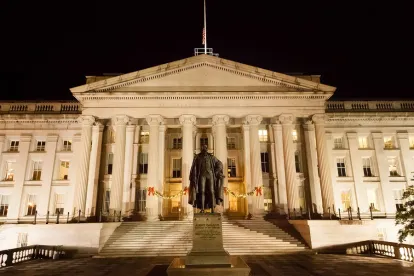A program adopted by Congress at the end of 2020, which has attracted little press coverage, could provide great benefit to qualified community financial institutions. The Consolidated Appropriations Act, 2021 (Act), effective December 27, 2020, establishes an Emergency Capital Investment Fund (ECIF) modeled loosely on the Community Development Capital Initiative (CDCI) and Small Business Lending Fund (SBLF) programs of the Troubled Asset Relief Program (TARP) era.
The Act establishes an aggregate amount of $9 billion for Treasury Department investment in preferred stock, or debentures if a subchapter S corporation, of community financial institutions.
Eligibility: At time of application, an applicant shall provide the Treasury Department with an investment lending plan demonstrating that not less than 30% of the lending of an applicant over the past two fiscal years was made directly to low- and moderate-income borrowers, to borrowers that create direct benefits for low- and moderate-income populations, or to other targeted populations as defined by the ECIF. Existing Community Development Financial Institutions should be meeting these obligations already. Institutions designated as being in a Troubled Condition or subject to a formal enforcement order for safety and soundness are not eligible to participate.
Term and Dividend Rate: The dividend rate is set at 2% for the first 10 years, with a downward adjustment, if the amount of lending by the institution within the minority, rural, and urban low-income and underserved communities to low- and moderate-income borrowers increases. If lending in such areas increases in an amount between 200% and 400% of the capital investment, the annual payment rate drops to 1.25%. If such lending is increased by more than 400% of the capital investment, the dividend rate drops to .5% per annum. It is unclear at present whether these are annual measurements, and the metrics of measurement are yet to be developed. No dividends are due within the first 24-month period, and dividends may be deferred if an applicant encounters a failure to meet Tier 1 Capital Ratios. If the investment is not repaid to the Treasury Department at the end of 10 years, it is likely to have a punitive interest rate.
Amount Available: The amount of preferred stock (or debentures for sub S corporations) that may be issued by a community financial institution is not more than 7.5% of total assets for institutions with assets more than $2 billion, 15% of total assets for institutions with assets between $500 million and $2 billion, and 22.5% of total assets for institutions with less than $500 million of assets, provided no investment by the Treasury Department can exceed $250 million. There is a $4 billion set-aside for institutions with less than $2 billion in assets.
Exit Strategy: Unlike the prior programs, the secretary of the Treasury is required to give a right of first refusal to the issuer to buy back the instrument before sale to a third party and shall not sell more than 25% of the interest to any one purchaser.
Grants: In addition to the proposed investment in preferred stock or debentures, $3 billion is appropriated for grants to community financial institutions to expand lending, grant making, or investment activity in low- to moderate-income minority communities and to minorities who have significant unmet capital financial services needs, as well as financial assistance, technical assistance, awards training, and outreach programs. No information has come out on such programs yet.
Capital Treatment: The legislation provides that the Treasury Department shall seek to establish that the preferred stock shall receive Tier 1 capital treatment.
Sunset of Program: Program eligibility will terminate six months after the National Emergency Declaration by the President on March 13, 2020, terminates.
Points of Concern: The Treasury Department is directed to issue rules setting restrictions on dividends, executive compensation, and share repurchases, but has yet to issue such rules. Because of restrictions imposed under the previous CDCI and SBLF programs, there are the following questions:
-
What are the limitations on executive compensation? Prior rules for the CDCI and SBLF programs limited cash bonuses to certain executive officers.
-
What are the limitations on dividends paid on common stock? Prior rules for the CDCI and SBLF programs limited dividends per annum to the amount of annual dividend paid in the year prior to participation in the program, and if reduced, set a lower ceiling.
-
What are the limitations on stock repurchase programs? Prior rules for the CDCI and SBLF programs prohibited any repurchase if preferred dividends were not paid current.
-
What are the limitations imposed on the 30% lending test eligibility criteria? The legislation includes borrowers “that create direct benefits for low- and moderate-income populations….”






 />i
/>i

